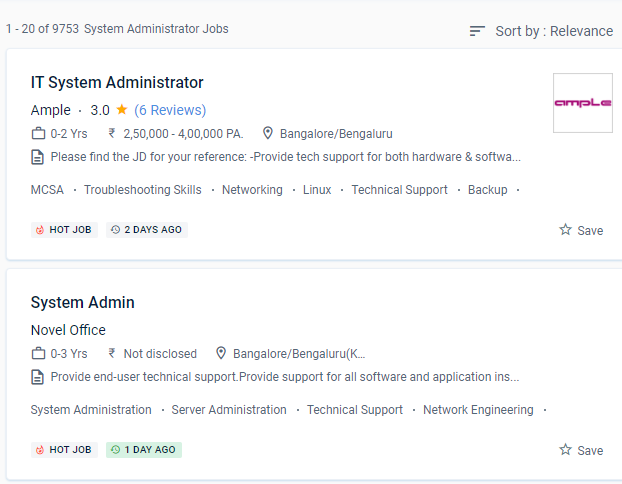System Administration Training by Experts
Our Training Process

System Administration - Syllabus, Fees & Duration
MODULE 1
- System administration introduction, policies, overview, UNIX history and basis
MODULE 2
- File systems and disks
MODULE 3
- Software installation concepts
MODULE 4
- Multi users basics, politics, policies and ethics
MODULE 5
- Automating administrative tasks
MODULE 6
- Networking
MODULE 7
- Backup and disaster recovery
MODULE 8
- DNS
MODULE 9
- SMTP, HTTP
MODULE 10
- Configuration management
MODULE 11
- Distributed computing
MODULE 12
- SNMP, monitoring
MODULE 13
- System security
This syllabus is not final and can be customized as per needs/updates





 These experts may go on to become technology and IT managers in the future. Some people excel at determining the company's technology needs as information systems managers. Finally, you'll discover how to restore your company's IT infrastructure following a disaster. Systems administration is the division of information technology that is in charge of keeping multi-user computer schemes up and running.
They install computers, laptops, intranets, servers, cybersecurity software, and other technology.
. Circuit boards and CPUs are assembled by computer hardware engineers to produce functional mobile or desktop devices. It is their responsibility to ensure that computer systems and related services work smoothly.
For secure, high-speed Internet access, they connect routers, modems, and firewalls. Information security managers are given more duties when it comes to protecting sensitive data from hackers.
These experts may go on to become technology and IT managers in the future. Some people excel at determining the company's technology needs as information systems managers. Finally, you'll discover how to restore your company's IT infrastructure following a disaster. Systems administration is the division of information technology that is in charge of keeping multi-user computer schemes up and running.
They install computers, laptops, intranets, servers, cybersecurity software, and other technology.
. Circuit boards and CPUs are assembled by computer hardware engineers to produce functional mobile or desktop devices. It is their responsibility to ensure that computer systems and related services work smoothly.
For secure, high-speed Internet access, they connect routers, modems, and firewalls. Information security managers are given more duties when it comes to protecting sensitive data from hackers.



















































































